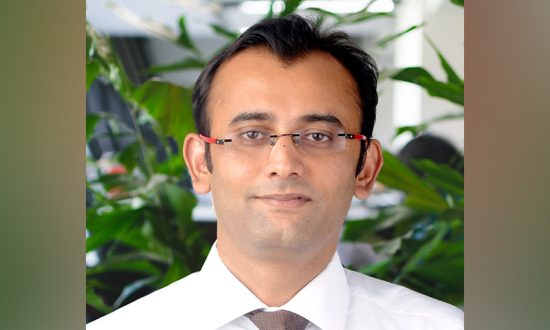Avinash is an experienced investment research professional with over 17 years’ experience in the industry. Avinash has managed and executed engagements across equity research and investment banking at global and domestics research firms. A strong research professional, Avinash completed his master’s in finance from Symbiosis Institute of International Business and holds a B.Tech. degree in Mechanical Engineering. Prior to Aranca, he worked at Axis Capital Ltd. and BNP Paribas Securities India Pvt Ltd.
An individual’s contributions and achievements are often the direct result of his/her team’s combined efforts. Notably, in a professional environment, the significance of team effort increases manifold. In my professional career of nearly 17 years, my performance has always been greatly influenced by the people around me – directly at the team level or indirectly at the organization level.
Today, as a leader I have the chance to implement learnings from my experience to help my team grow, both personally and professionally. When it comes to creating an environment conducive for a team’s growth, there is no right or wrong approach. However, as an influencer, it is crucial for me to adapt to the changing situations and individual personalities while keeping an eye on the big picture. Here is how I look at this challenge:
I believe making team members independent is crucial to the team’s growth. I have always found teams thriving when individuals/team members are enabled to make decisions on their own. The emphasis on enabling independent decision-making is high as independence should not be confused with mere delegation. Independence comes with responsibilities, as well as a sense of pride and accomplishment, while tackling challenging situations. Making this the primary route is highly significant, especially in a consulting and advisory firm where teams deal with multiple internal and external stakeholders on a regular basis. Managing teams through such an approach also helps in identifying future leaders – individuals who have climbed the ranks and can step up and take the team forward. This is particularly significant in today’s environment where the Great Resignation can affect a team’s stability.
Another critical element to consider while creating a strong team is the collective skills quotient. A constant endeavor to question one’s skills is an attitude that must be engrained in every team member. This not only leads to healthy internal competitiveness but also ensures constant monitoring of quality standards. At times, the responsibility to identify areas where investments are required to enhance the team’s overall capabilities lies with senior members and leaders, within the larger team. Consistently upgrading the team’s skills is crucial in today’s world where customer requirements are fluid and dynamic.
Promoting a culture of open communication is necessary to identify the gaps that can emerge as the team works in a changing environment, resolves complex situations, and deals with challenges accompanying growth. It can also help develop the level of trust required for a well-functioning team. Over a period, modes of communication and formats for intra-team interaction can get stereotypical. At times, just a change in the physical setting in which the team works on a day-to-day basis can help break the monotony. Inviting ideas in an open forum and periodically questioning the team’s approaches during interactive sessions have proven to be very useful. Communicating feedback across levels ensures transparency and timely course corrections, as needed, while enhancing trust within the team.
Finally, it is important for every team to understand the tangible goals and targets – the team’s leaders and senior members must ensure the individuals are aligned with them. While big-picture targets are necessary, periodic assessment of performances and milestone achievements is equally crucial. Recognition of initiatives, big or small, goes a long way in creating a positive atmosphere within the team. An incentive-driven culture must be developed where individuals and the team are well rewarded for the growth they deliver and where performance is measured purely on the basis of merit.
These are by no means fool-proof methods to drive a team and its members toward collective and individual growth. However, I do believe independence, skills, communication, and objectively defined and periodically assessed individual and team goals and targets are factors that are crucial to achieving progress within a team.


